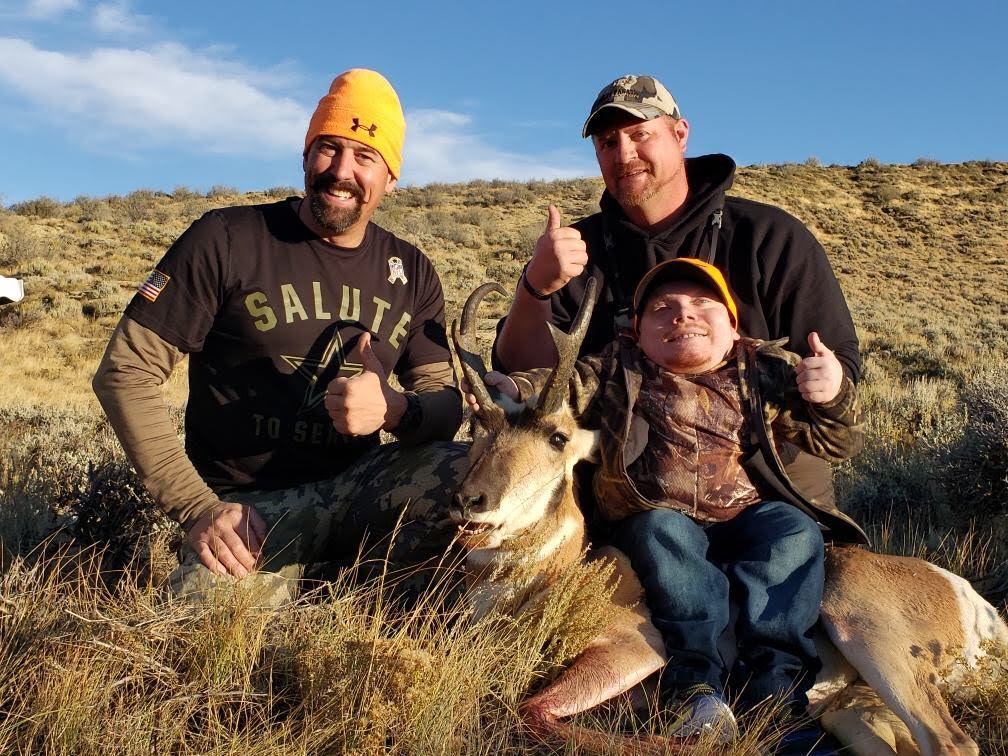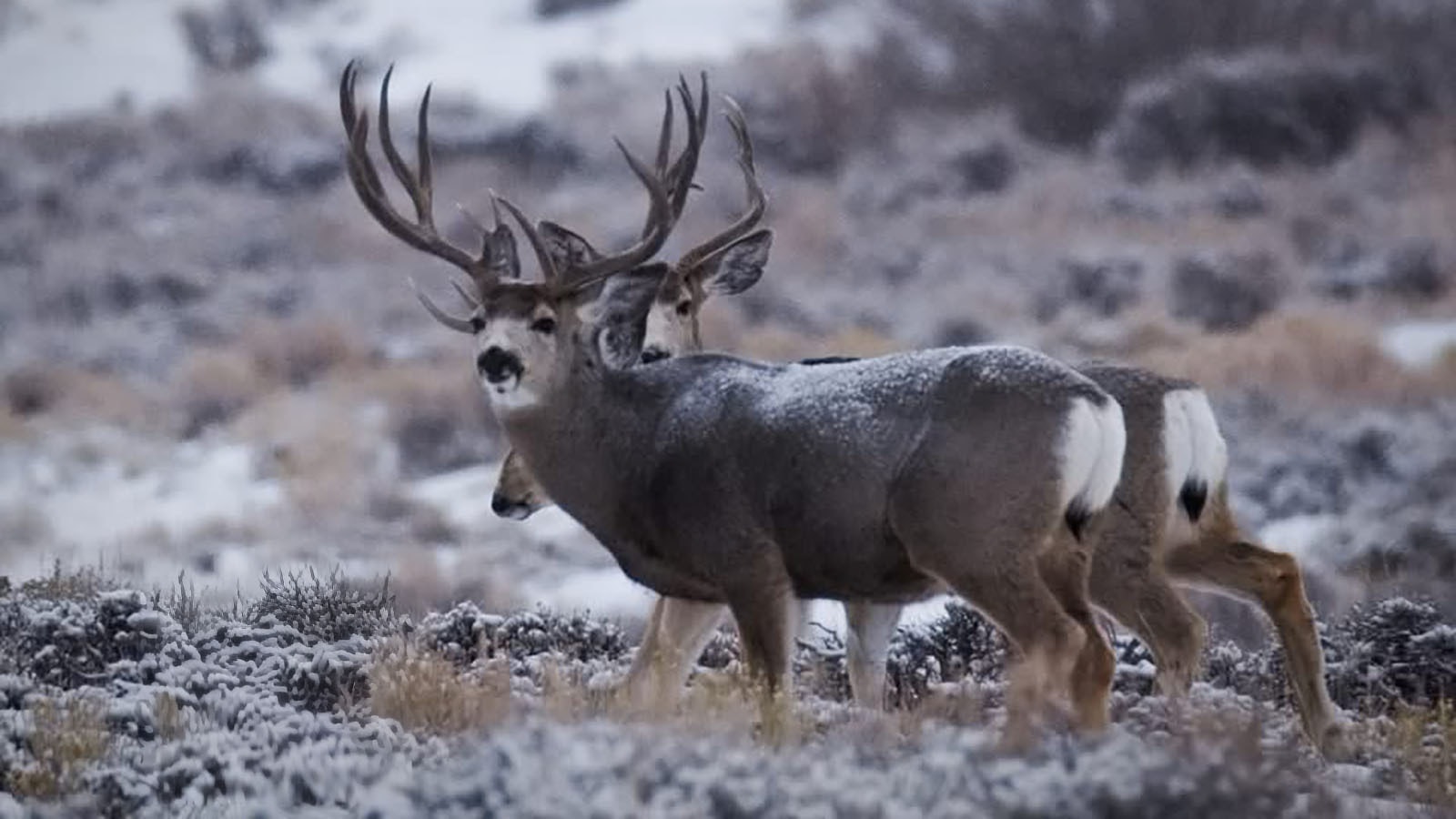For some terminally ill children, hunting can be a break from the grueling regimen of treatments and a chance to experience normalcy, Muley Fanatic Foundation Co-founder Josh Coursey said.
But for 20-year-old Noah Walters, it could be more — a reason to continue fighting 10 years after doctors predicted he would die, said his mother Denise.
“A few years ago, Noah was dealing with some real depression,” she explained. “If he did not have hunting, I don’t know if he would still be with us.”
Of the 3 million people in Mississippi, Denise said Noah is the only person diagnosed with Morquio Syndrome Type A, a progressive disease that prevents the body from breaking down sugar chains called glycosaminoglycans and can cause abnormal bone and spine growth, resulting in diminished stature and reduced mobility.
Despite his ailments, which include heart and respiratory conditions, Noah harvested his first pronghorn this year in Wyoming with the help of the Muley Fanatic Foundation.
“He may be a little person, but he’s a firecracker,” Denise said. “He does not allow his disease to control him.”
Noah was one of 17 people, mostly children, the Wyoming-based foundation took on hunts through the “Putting the U in hunt” program in 2019, Coursey said. “We know how important this is for children with terminal illnesses,” Coursey said. “We see it as an opportunity for us to do good.”
‘Furthering the sport’
Founded in 2011, Muley Fanatic is a nonprofit organization dedicated to wildlife conservation primarily in Wyoming, though chapters have recently popped up in Colorado, Utah and Virginia.
“We’ve been facilitating these youth hunts from the outset,” Coursey said. “As a conservation group, part of our mission includes furthering the sport of hunting, and we recognize this as an opportunity to do that good work for these kids who are at a disadvantage.”
The idea for the program came from a friendship between the foundation’s founders and a local family whose child was terminally ill.
“We knew as a nonprofit we could petition the game commission to have these (hunting) tags allocated to allow for these opportunities in areas conducive to the individual hunter and their needs,” Coursey explained.
Under Section 13 of the Wyoming Game and Fish hunting regulations, the game commission can issue a limited number of licenses for deer, elk, pronghorn and turkeys to nonprofits for the use of terminally ill people between the ages of 12 and 20.
“It allows the youth hunter to be in the area five days prior to the area being opened to the public,” Coursey said.
To be eligible, applicants must submit their paperwork with a statement from a licensed physician stating the license recipient is clinically diagnosed with a life-threatening or serious illness. The application must be submitted by Jan. 31 of the requested year — a full nine months ahead of the opening of hunting season in some cases.
“It’s a long process,” Coursey said, “but that gives us time to get everything together and the families time to ensure the kids have the green light from their doctors.”
Meeting unique needs
Muley Fanatic provides the young hunters, who come from all over the nation, with an all-expense paid experience for both them and their caretakers.
“They have enough to worry about as is, so we take care of everything while they’re here,” Coursey said. “We buy the tags, provide the meals, pay for the travel and any hotel expenses they might have.”
The average hunt costs about $1,800, he explained.
“We do that through fundraising throughout the year and have donations earmarked just for this program,” Coursey said. “But we couldn’t do it without our volunteers. We have a lot of great resources in Wyoming in our wildlife and wide-open spaces, but our greatest resource of all is our people.”
For hunters with disabilities, the standard array of hunting gear doesn’t always meet their needs. In some cases, the foundation has worked with other organizations such as Holy Pursuits Dream Foundation, based in West Virginia, to supply specialty equipment for the hunters.
“We’ve had five children now that have been able to hunt with a specifically designed firing mechanism using a breathing tube,” Coursey said. “It takes a little practice out on the range to get used to, but we’ve seen some good success with the mechanisms.”
While hunters can request what type of animal they would like to pursue, he said mobility remains a factor.
“We’ve had children that have no motor function from the shoulders down,” Coursey said. “The mule deer hunts require more mobility than the antelope and elk hunts, which takes some of the access away.”
Muley Fanatic volunteer and Red Desert Outfitters owner Jason Faigl said patience is key when looking for an animal the participants could have an opportunity to harvest.
“A lot of the challenge is being able to get the hunter to the area and set up to shoot,” Faigl explained. “We do everything we can to make sure they are comfortable and make sure we’re not affecting their illness in any way.”
Word of mouth
Starting with only a couple hunts in the first year, “Putting the U in hunt” was slow to gain momentum, but participation more than tripled in 2019.
“We typically have about four to five hunters a year,” Coursey said. “This year, we had 17.”
Healthcare data is protected by federal law, so the foundation relies on word of mouth and social media to attract participants.
Having logged about 25 hunts since 2011, Noah and his family are well-acquainted with hunting organizations who help the terminally ill, but it was only recently his family learned about the Muley Fanatic Foundation.
“I’d seen the Muley Fanatic Facebook page, but I hadn’t really reached out until another organization told us about the program,” Denise recalled.
Without word of mouth, Noah might have never discovered his ability to hunt.
“It was always something he was interested in as a kid, but he wasn’t sure he’d be able to do it,” Denise said, explaining the doctors predicted shortly after birth Noah’s life expectancy would be about 10 years. “The pastor at our church heard him talking about it one day and decided to look into it.”
With the pastor’s help, Noah discovered a group in Wisconsin that was willing to take him bear hunting.
“He’s been hooked on it ever since,” Denise said. “Not every hunt is successful, but Noah says that’s why it’s called hunting. If we were successful every time, he says it’d be called shooting.”
Having hunted all over the country, Noah was excited about the prospect of nabbing a pronghorn.
“We’d seen several antelope that morning, but they were far off or too quick,” Denise recalled about the Muley Fanatic-sponsored hunt. “It takes a long time to set up the shot. Sometimes he sits in his dad’s lap, sometimes he sits in mine. It’s a mom, dad and Noah team effort, but we get the job done.”
The team successfully harvested an antelope during their visit, an experience Denise said Noah cherishes.
“The people are absolutely wonderful, and the state is gorgeous,” she said. “Are we going to visit again? Absolutely.”
For more information about the Muley Fanatic Foundation go to www.muleyfanatic.org or call (307) 875-3133.





